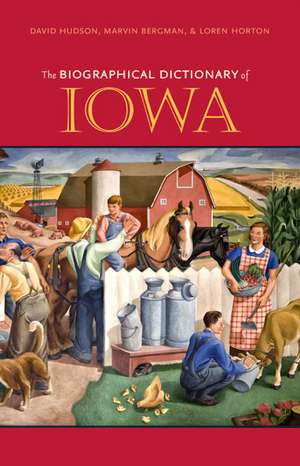The Biographical Dictionary of Iowa: Bur Oak Book
Editat de David Hudson, Marvin Bergman, Loren Hortonen Limba Engleză Hardback – 31 dec 2008 – vârsta ani
Iowa has been blessed with citizens of strong character who have made invaluable contributions to the state and to the nation. In the 1930s alone, such towering figures as John L. Lewis, Henry A. Wallace, and Herbert Hoover hugely influenced the nation’s affairs. Iowa’s Native Americans, early explorers, inventors, farmers, scholars, baseball players, musicians, artists, writers, politicians, scientists, conservationists, preachers, educators, and activists continue to enrich our lives and inspire our imaginations.
Written by an impressive team of more than 150 scholars and writers, the readable narratives include each subject’s name, birth and death dates, place of birth, education, and career and contributions. Many of the names will be instantly recognizable to most Iowans; others are largely forgotten but deserve to be remembered. Beyond the distinctive lives and times captured in the individual biographies, readers of the dictionary will gain an appreciation for how the character of the state has been shaped by the character of the individuals who have inhabited it.
From Dudley Warren Adams, fruit grower and Grange leader, to the Younker brothers, founders of one of Iowa’s most successful department stores, The Biographical Dictionary of Iowa is peopled with the rewarding lives of more than four hundred notable citizens of the Hawkeye State. The histories contained in this essential reference work should be eagerly read by anyone who cares about Iowa and its citizens.
Entries include Cap Anson, Bix Beiderbecke, Black Hawk, Amelia Jenks Bloomer, William Carpenter, Philip Greeley Clapp, Gardner Cowles Sr., Samuel Ryan Curtis, Jay Norwood Darling, Grenville Dodge, Julien Dubuque, August S. Duesenberg, Paul Engle, Phyllis L. Propp Fowle, George Gallup, Hamlin Garland, Susan Glaspell, Josiah Grinnell, Charles Hearst, Josephine Herbst, Herbert Hoover, Inkpaduta, Louis Jolliet, MacKinlay Kantor, Keokuk, Aldo Leopold, John L. Lewis, Marquette, Elmer Maytag, Christian Metz, Bertha Shambaugh, Ruth Suckow, Billy Sunday, Henry Wallace, and Grant Wood.
Excerpt from the entry on:
Gallup, George Horace (November 19, 1901–July 26, 1984)—founder of the American Institute of Public Opinion, better known as the Gallup Poll, whose name was synonymous with public opinion polling around the world—was born in Jefferson, Iowa. . . . . A New Yorker article would later speculate that it was Gallup’s background in “utterly normal Iowa” that enabled him to find “nothing odd in the idea that one man might represent, statistically, ten thousand or more of his own kind.” . . . In 1935 Gallup partnered with Harry Anderson to found the American Institute of Public Opinion, based in Princeton, New Jersey, an opinion polling firm that included a syndicated newspaper column called “America Speaks.” The reputation of the organization was made when Gallup publicly challenged the polling techniques of The Literary Digest, the best-known political straw poll of the day. Calculating that the Digest would wrongly predict that Kansas Republican Alf Landon would win the presidential election, Gallup offered newspapers a money-back guarantee if his prediction that Franklin Delano Roosevelt would win wasn’t more accurate. Gallup believed that public opinion polls served an important function in a democracy: “If govern¬ment is supposed to be based on the will of the people, somebody ought to go and find what that will is,” Gallup explained.
Written by an impressive team of more than 150 scholars and writers, the readable narratives include each subject’s name, birth and death dates, place of birth, education, and career and contributions. Many of the names will be instantly recognizable to most Iowans; others are largely forgotten but deserve to be remembered. Beyond the distinctive lives and times captured in the individual biographies, readers of the dictionary will gain an appreciation for how the character of the state has been shaped by the character of the individuals who have inhabited it.
From Dudley Warren Adams, fruit grower and Grange leader, to the Younker brothers, founders of one of Iowa’s most successful department stores, The Biographical Dictionary of Iowa is peopled with the rewarding lives of more than four hundred notable citizens of the Hawkeye State. The histories contained in this essential reference work should be eagerly read by anyone who cares about Iowa and its citizens.
Entries include Cap Anson, Bix Beiderbecke, Black Hawk, Amelia Jenks Bloomer, William Carpenter, Philip Greeley Clapp, Gardner Cowles Sr., Samuel Ryan Curtis, Jay Norwood Darling, Grenville Dodge, Julien Dubuque, August S. Duesenberg, Paul Engle, Phyllis L. Propp Fowle, George Gallup, Hamlin Garland, Susan Glaspell, Josiah Grinnell, Charles Hearst, Josephine Herbst, Herbert Hoover, Inkpaduta, Louis Jolliet, MacKinlay Kantor, Keokuk, Aldo Leopold, John L. Lewis, Marquette, Elmer Maytag, Christian Metz, Bertha Shambaugh, Ruth Suckow, Billy Sunday, Henry Wallace, and Grant Wood.
Excerpt from the entry on:
Gallup, George Horace (November 19, 1901–July 26, 1984)—founder of the American Institute of Public Opinion, better known as the Gallup Poll, whose name was synonymous with public opinion polling around the world—was born in Jefferson, Iowa. . . . . A New Yorker article would later speculate that it was Gallup’s background in “utterly normal Iowa” that enabled him to find “nothing odd in the idea that one man might represent, statistically, ten thousand or more of his own kind.” . . . In 1935 Gallup partnered with Harry Anderson to found the American Institute of Public Opinion, based in Princeton, New Jersey, an opinion polling firm that included a syndicated newspaper column called “America Speaks.” The reputation of the organization was made when Gallup publicly challenged the polling techniques of The Literary Digest, the best-known political straw poll of the day. Calculating that the Digest would wrongly predict that Kansas Republican Alf Landon would win the presidential election, Gallup offered newspapers a money-back guarantee if his prediction that Franklin Delano Roosevelt would win wasn’t more accurate. Gallup believed that public opinion polls served an important function in a democracy: “If govern¬ment is supposed to be based on the will of the people, somebody ought to go and find what that will is,” Gallup explained.
Din seria Bur Oak Book
-
 Preț: 139.41 lei
Preț: 139.41 lei -
 Preț: 224.67 lei
Preț: 224.67 lei -
 Preț: 160.42 lei
Preț: 160.42 lei -
 Preț: 229.82 lei
Preț: 229.82 lei -
 Preț: 90.72 lei
Preț: 90.72 lei -
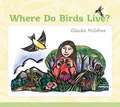 Preț: 101.00 lei
Preț: 101.00 lei -
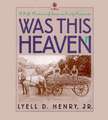 Preț: 239.24 lei
Preț: 239.24 lei -
 Preț: 184.19 lei
Preț: 184.19 lei -
 Preț: 164.03 lei
Preț: 164.03 lei -
 Preț: 154.59 lei
Preț: 154.59 lei -
 Preț: 120.25 lei
Preț: 120.25 lei -
 Preț: 188.74 lei
Preț: 188.74 lei -
 Preț: 227.07 lei
Preț: 227.07 lei - 23%
 Preț: 230.06 lei
Preț: 230.06 lei -
 Preț: 171.70 lei
Preț: 171.70 lei -
 Preț: 128.66 lei
Preț: 128.66 lei -
 Preț: 207.86 lei
Preț: 207.86 lei -
 Preț: 167.39 lei
Preț: 167.39 lei -
 Preț: 188.61 lei
Preț: 188.61 lei -
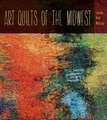 Preț: 183.67 lei
Preț: 183.67 lei -
 Preț: 143.92 lei
Preț: 143.92 lei -
 Preț: 145.92 lei
Preț: 145.92 lei -
 Preț: 261.11 lei
Preț: 261.11 lei -
 Preț: 130.42 lei
Preț: 130.42 lei -
 Preț: 110.08 lei
Preț: 110.08 lei -
 Preț: 147.98 lei
Preț: 147.98 lei -
 Preț: 228.64 lei
Preț: 228.64 lei -
 Preț: 82.82 lei
Preț: 82.82 lei -
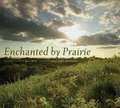 Preț: 227.16 lei
Preț: 227.16 lei -
 Preț: 208.10 lei
Preț: 208.10 lei -
 Preț: 143.83 lei
Preț: 143.83 lei -
 Preț: 184.11 lei
Preț: 184.11 lei -
 Preț: 155.48 lei
Preț: 155.48 lei -
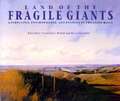 Preț: 141.89 lei
Preț: 141.89 lei -
 Preț: 146.58 lei
Preț: 146.58 lei -
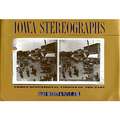 Preț: 280.07 lei
Preț: 280.07 lei -
 Preț: 147.30 lei
Preț: 147.30 lei -
 Preț: 163.55 lei
Preț: 163.55 lei -
 Preț: 194.83 lei
Preț: 194.83 lei -
 Preț: 148.02 lei
Preț: 148.02 lei -
 Preț: 96.14 lei
Preț: 96.14 lei -
 Preț: 204.05 lei
Preț: 204.05 lei -
 Preț: 157.36 lei
Preț: 157.36 lei -
 Preț: 132.41 lei
Preț: 132.41 lei -
 Preț: 207.80 lei
Preț: 207.80 lei -
 Preț: 225.62 lei
Preț: 225.62 lei -
 Preț: 143.83 lei
Preț: 143.83 lei -
 Preț: 117.95 lei
Preț: 117.95 lei -
 Preț: 180.44 lei
Preț: 180.44 lei
Preț: 345.93 lei
Nou
Puncte Express: 519
Preț estimativ în valută:
66.19€ • 69.11$ • 54.78£
66.19€ • 69.11$ • 54.78£
Carte indisponibilă temporar
Doresc să fiu notificat când acest titlu va fi disponibil:
Se trimite...
Preluare comenzi: 021 569.72.76
Specificații
ISBN-13: 9781587296857
ISBN-10: 1587296853
Pagini: 608
Dimensiuni: 156 x 235 x 43 mm
Greutate: 0.99 kg
Ediția:1
Editura: University of Iowa Press
Colecția University Of Iowa Press
Seria Bur Oak Book
ISBN-10: 1587296853
Pagini: 608
Dimensiuni: 156 x 235 x 43 mm
Greutate: 0.99 kg
Ediția:1
Editura: University of Iowa Press
Colecția University Of Iowa Press
Seria Bur Oak Book
Recenzii
“In The Biographical Dictionary of Iowa, we have a comprehensive listing of famous and influential Iowans, from Dudley Warren Adams to the Younker brothers. This accessibly written and thorough volume will be useful to anyone with an interest in the history of Iowa and the Midwest.”—Pamela Riney-Kehrberg, professor and director of the Agricultural History and Rural Studies Program, Iowa State University
"Comprehensive and concise, The Biographical Dictionary of Iowa will save generations of reporters, students, teachers, historians, and reference librarians hours tracking down who's who in Iowa's past. In simple alphabetical order, hundreds of Iowa luminaries from chiropractic medicine, women's suffrage, environmentalism, politics, astronomy, the Nobel Prize, education, the military, and art of all stripes take a bow. Bravo."—Tom Morain, author, Prairie Grass Roots
"Comprehensive and concise, The Biographical Dictionary of Iowa will save generations of reporters, students, teachers, historians, and reference librarians hours tracking down who's who in Iowa's past. In simple alphabetical order, hundreds of Iowa luminaries from chiropractic medicine, women's suffrage, environmentalism, politics, astronomy, the Nobel Prize, education, the military, and art of all stripes take a bow. Bravo."—Tom Morain, author, Prairie Grass Roots
Notă biografică
David Hudson recently retired as acquisitions librarian for the State Historical Society of Iowa. Marvin Bergman has edited the Annals of Iowa for the State Historical Society of Iowa since 1987. He is the coeditor of Unionizing the Jungles: Labor and Community in the Twentieth-Century Meatpacking Industry (Iowa, 1997) and the editor of the Iowa History Reader (Iowa edition, 2008). Loren Horton retired as senior historian after twenty-four years of working for the State Historical Society of Iowa.
Descriere
Written by an impressive team of more than 150 scholars and writers, the readable narratives include each subject’s name, birth and death dates, place of birth, education, and career and contributions. Many of the names will be instantly recognizable to most Iowans; others are largely forgotten but deserve to be remembered. Beyond the distinctive lives and times captured in the individual biographies, readers of the dictionary will gain an appreciation for how the character of the state has been shaped by the character of the individuals who have inhabited it.
